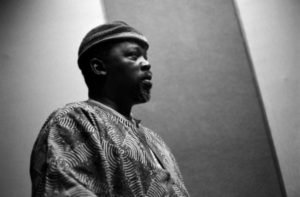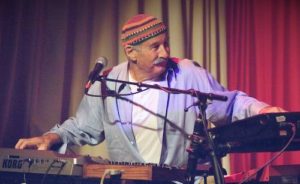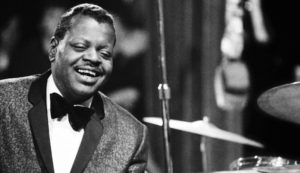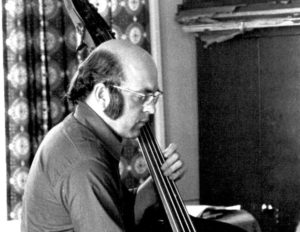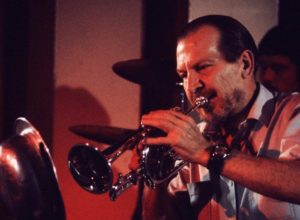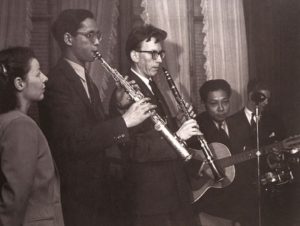Babatunde Olatunji
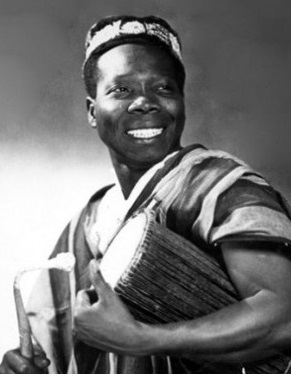
Babatunde Olatunji (1927-2003) was a key figure in introducing American audiences (and musicians) to the spiritual power and rhythmic complexity of African music. He was born in a small fishing village, Ajido, some 40 miles outside of Lagos, and was fascinated from an early age by the master drummers at village festivals. As a teenager, he sang with a choir in Lagos, before applying for a scholarship to Morehouse College, an all-black establishment in Atlanta, Georgia, from where Martin Luther King Jr had graduated just two years earlier.
Olatunji found America in 1950 ignorant of African culture, even among the African-American student body. He studied public administration at New York University and planned on becoming a diplomat. At the same time, he sought to raise awareness of authentic African music and started up a percussion ensemble, which included American percussionists Montego Joe and Chief Bey. Legendary talent scout John Hammond spotted him and signed him to record fo Columbia Records, and in 1959 he released his debut album Drums Of Passion, which was hugely successful both commercially, and artistically in its traditional presentation of massed voices, and drum conversations. Olatunjui’s composition ‘Jin-Go-Lo-Ba’ from the album has, over the years, attracted cover version from musicians as diverse as James Last, Serge Gainsbourg, Santana and Fatboy Slim.
In 1960, he was invited to record with Randy Weston on his successful fusion of jazz and African music Uhuru Afrika, and he also appeared on Max Roach’s historic album We Insist! and guested with trombonist Kai Winding. The following year, he recorded with Herbie Mann and Cannonball Adderly. He also recorded his second album Zungo!, which incorporated efforts at fusing jazz and African rhythms. Clark Terry and Yusef Lateef brought much of the jazz content, while Olatunji brought in Montego Joe and Chief Bey again to fill out the percussion section. He became friendly with John Coltrane, who wrote the tune ‘Tunji’ in dedication to him, recorded on the album Coltrane in 1962. The saxophonist would give his last ever concert in 1967 at the Olatunji Centre for African Culture, which the two had set up together in Harlem.
Olatunji recorded Manu Dibango‘s ‘Soul Makossa’ for an album of the same name in 1973, and was recruited by Horace Silver for the album Silver ‘n’ Percussion in 1977. Olatunji continued to spread the word about African music, publishing a book on the subject in 1965, and teaching drum and workshops. One of his students, The Grateful Dead’s Mickey Hart, would later feature his teacher on several albums in the 1990s. He was active in the Civil Rights movement, touring with Martin Luther King Jr through the south. Guy Warren‘s work in America in attempting to reunite jazz with its African roots, predated Olatunji’s efforts, but the latter’s more patient approach and the success of his early albums mean he is better remembered today.
Key recordings:
Drums of Passion (Columbia 1960)
Zungo! (Columbia 1961)
Soul Makossa (Paramount 1973)
